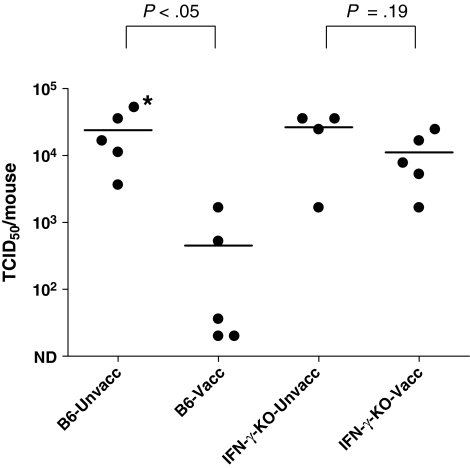FIG. 5.
Vaccinated INF-γ-KO mice fail to control virus challenge. IFN-γ-KO and B6 mice were vaccinated with DNA (D) and vaccinia virus (V) in a prime-boost regimen. Inoculations were in the order D-D-V-D. One month after the last injection, vaccinated and unvaccinated mice were challenged with recombinant Sendai virus (2 × 103 PFU/animal, intranasal administration) and sacrificed on day 5. Mice were given ip injections with the anti-CD8 2.43.1 mAb on days −5, −3, −1, +1, and +3 relative to rSeV-env challenge. Lungs were harvested and the titers of challenge virus in the lungs were determined by a TCID50 measurement on LLC- MK2 cells. The Reed–Muench formula was used to calculate the TCID50. Each symbol represents the TCID50 of a different animal. The asterisk indicates that the titer reached the assay peak and may therefore have been higher than indicated. The level of protection demonstrated in the vaccinated B6 mice was statistically significant (p < 0.05), but protection was not significant in the interferon γ-KO mice (p = 0.19).

